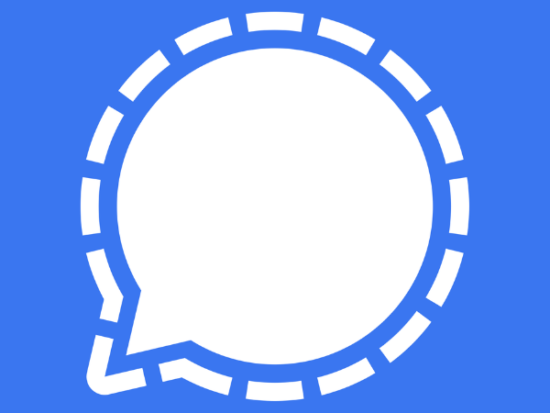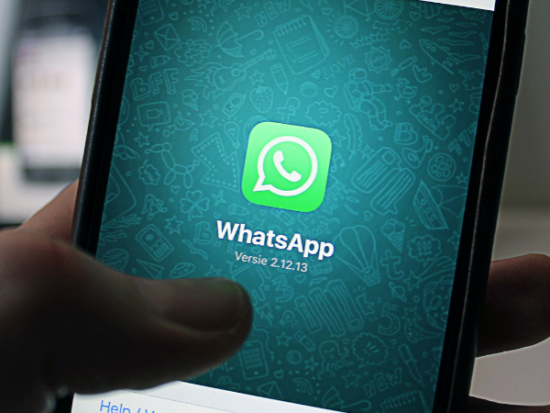Whatsapp vs. Signal – Privacy Policy
The recent update to the Whatsapp Privacy Policy caused a massive user exodus.
It came with a message that stated it would collect more user data. In response, thousands of users fled Whatsapp to protect their personal information.
Instead, many of them switched to Signal, an alternative messaging app that promises more user privacy. As a result, Signal is experiencing increased customer reception.
Is it time to drop Whatsapp? What makes Signal more special anyway? Let’s check both of their privacy policies to find out!
The Rundown With Whatsapp
On January 6, Whatsapp updated its terms of service.
Now, a Whatsapp user must allow the app to share your data with other Facebook companies. Otherwise, they won’t be able to access their accounts.
Facebook owns Whatsapp along with its other companies. This means Instagram and the other parts of the Facebook network could freely access your information.
This was optional years ago, but the new update will make it mandatory. Now, the Whatsapp privacy policy explicitly states that it may share user data with other Facebook companies.
In response, numerous users abandoned the platform and searched for a private messaging app. One of the lucky ones was Signal, which gained 810,000 users in a single day.
Whatsapp Privacy Policy
Most people celebrate Mark Zuckerberg as the head of Facebook, but he owns much more companies.
Years after creating the social media site, Zuckerberg has acquired more businesses. These include major brands like Instagram, Oculus VR, and Whatsapp, along with several minor companies.
The Whatsapp privacy policy will let the app share user info with these other companies. These include personal details such as:
- Purchase details
- User content
- Contact details (buyer & seller’s mail ID, phone numbers, etc.)
- User identity and device information
- User financial info
- Crash data
- Detailed diagnostic info
- Performance info
- Product information
- Advertising data
- Location info
- Coarse location
- Customer support
- Other user content
These are collected from all users or businesses on Whatsapp. They are compiled in a detailed data log if messages are supposedly connected to any commercial exchange.
The messaging app also declared that the data we’ve mentioned could be shared with other Facebook companies. In turn, these companies will use them to improve their advertising and marketing services.
The terms of service in the Whatsapp privacy policy states:
“WhatsApp must receive or collect some information to operate, provide, improve, understand, customize, support, and market our Services, including when you install, access, or use our Services…We also use the information we have to understand how people use our Services; evaluate and improve our Services; research, develop, and test new services and features; and conduct troubleshooting activities.”
Furthermore, the new Whatsapp policy enables Facebook companies to access its data. This could enable these businesses to send personalized ads and push notifications.
Whatsapp And Metadata
In response, Whatsapp reassured the public of its commitment to data privacy.
The company posted on Twitter:
“We want to address some rumors and be 100% clear we continue to protect your private messages with end-to-end encryption.”
Whatsapp also claims its end-to-end encryption means it can’t access your personal information. This means sent messages can’t be accessed until the recipient device decrypts them.
Still, the messaging app could use the data surrounding your messages.
It’s called metadata, and these are not encrypted. It includes details regarding someone you spoke with, the time you spoke to each other, and how often.
The new Whatsapp privacy policy allows other Facebook companies to access this valuable data source. It enables them to derive behavioral patterns so that they may personalize your ads.
Metadata is so effective that law enforcement uses these for criminal investigations. Now, Whatsapp metadata can be shared with Facebook and its other companies.
Signal Privacy Policy

Photo Credit: Wikipedia
The brilliant mind of Brian Acton created Whatsapp and Signal.
Mark Zuckerberg acquired Acton’s Whatsapp in 2014 for $22 million. Eventually, Acton disagreed with Zuckerberg’s plan to monetize Whatsapp with commercial messaging and targeted ads.
Due to his strained ties with Zuckerberg, Acton left the company in September 2017. Then in January 2018, he launched his own private messaging alternative called Signal.
The recent Whatsapp privacy policy debacle caused a massive influx of new Signal users. Even better, Elon Musk boosted Signal stocks further by promoting it on Twitter.
Comparing the Two
Many people view Signal as the more secure alternative to Whatsapp for a good reason.
Whatsapp and Signal both use end-to-end encryption, but the latter provides more data protection.
You may invite fellow Signal users, but only you have access to your message contents. It also doesn’t keep your personal and professional info, except for your phone number.
Unlike the Whatsapp privacy policy, Signal’s encrypts metadata. Moreover, it secures user backup data and metadata by encryption using a four-digit passcode.
Signal also has “Sealed Sender,” a privacy policy that prevents it from identifying senders and receivers. It even encrypts single and group calls.
Signal’s privacy policy also requires third-party providers to send a verification code when you register for Signal services. The policy also states:
“…If you use other Third-Party Services like YouTube, Spotify, Giphy, etc., in connection with our Services, their Terms and Privacy Policies govern your use of those services.”
Unfortunately, Whatsapp provides cloud storage, but Signal does not. If a Signal user loses their device, they cannot retrieve their stolen or lost data.
Why Privacy Policies Are Important
Nowadays, all smartphone apps require agreeing to privacy policies. For example, people needed to agree to the Whatsapp privacy policy to use the service.
This wasn’t the standard protocol for smartphone apps. However, that changed after Mark Zuckerberg’s Cambridge Analytica scandal.
He had to testify to the US Senate and explain why he gathered data from 87 million Facebook users inappropriately. Since then, the public became more concerned about securing their data.
Privacy Policies Establish User Trust
To ally their users’ fears, app developers created privacy policies. These outlined the extent of their data collection, so people knew how their personal information could be affected.
The Whatsapp privacy policy issue highlights the importance of privacy policies. The recent updates ruined the trust of their users, so they fled in droves for better alternatives.
These policies serve as agreements between an app’s company and its users. It boils down to, “You must agree to these conditions if you want to use our app.”
It lays out what users should expect by using their service. On the other hand, it informs the company’s potential liabilities with their users.
Privacy Policies Adhere To The Law
The Whatsapp privacy policies and similar documents notify their compliance with applicable laws.
Several states and other countries protect their citizens’ personal information from inappropriate use. This is why they have their app privacy laws.
For example, the United States has several federal and state laws for data privacy. The Federal Trade Commission (FTC) regulates data protection, but the Golden State has its California Online Privacy Protection Act (CalOPPA).
Their neighborhood ally Canada has the Personal Information Protection and Electronic Documents Act (PIPEDA). Down under, Australia has the 1988 Privacy Act that monitors the handling of personal information.
App agreements such as the Whatsapp privacy policy assure users that their services are legal. Users feel safe knowing that an app poses no risk of potential legal ramifications.
Related Articles
Best Valentine’s Day Ideas on Amazon
How to Relax With CBD
Can You Get COVID More Than Once?
Best Toddler Shoes On Amazon
What to Consider
Now that you know the importance of privacy policies, you should learn how to protect your online privacy.
Smartphone apps are a crucial part of modern life. They’re indispensable tools that assist with various everyday tasks.
It’s highly impractical to forego their use completely. Still, you could protect your personal information with the following steps:
- Check the privacy policy before you provide important info to an app or website. Online agreements for apps and sites are usually lengthy, so it’s impractical to read them thoroughly. Instead, you may skip to the privacy policy near the bottom of the agreement. Stay away if there’s no privacy policy provided.
- Identify the security measures an app uses to protect your data. The privacy policy should clearly explain how it will secure your information. Otherwise, find another option. Please note that you won’t find an alternative to the Whatsapp privacy policy that guarantees 100% security.
- Determine your privacy choices. Apps usually ask for permissions before you could install them. There are two types of permissions: normal and dangerous. The former poses no risk to user privacy, such as setting the time zone.
In contrast, the latter includes the email addresses and phone numbers of friends or family. Find out if you could opt-out of data collection through privacy settings or similar measures.
Final Thoughts
The Whatsapp privacy policy awakened people to the importance of data protection.
This caused several people to switch to Signal. However, everyone must remain vigilant with their info online.
Make sure you consent to your apps’ data collection. Ensure you know the information they’re gathering and their methods to protect it.
More importantly, keep yourself up-to-date with technological advancements that could affect your data. These apps constantly improve and change, so you should too.



